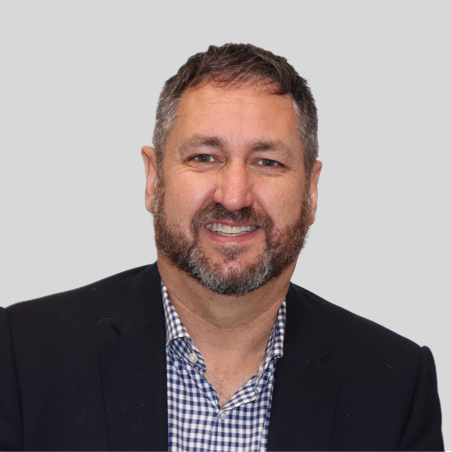Partner Story: Tim Sprague
Where were you born?
Sydney, lived in Melbourne for mid high school, Sydney the rest.
What did you do before becoming a coach?
I was the HR director at AGC finance, AGSM and Macquarie Uni.
What is an interesting fact about you?
I used to work restoring steam ships.
What do you enjoy doing in your personal time?
I play in a band that raises money for charities.
What causes are you passionate about?
Quality coaching, I think untrained coaches are more dangerous than no coaching.
The environment, I studied Zoology, and I despair over short-term thinking.
The search for facts and evidence amongst all the uninformed opinion on the internet.
The maintenance of human rights, sovereignty, and democracy
Origin Story: What inspired you to become a coach, and can you share one unforgettable moment from your early days?
I was becoming jaded in HR, at the executive level it was all too remote. I couldn’t see how I was helping individuals if I was at all. I was coming out of a conference and decided to grab lunch before I had to leave early for a meeting. Professor Tony Grant, the founder of the Sydney University Psychology Unit, was grabbing a late lunch before going in to speak. We introduced ourselves and ended up having lunch together. We talked about coaching psychology, kids (we found out our boys went to the same school) and music. I was enthralled and motivated. Within a year, I ended up changing career, enrolling in the Masters of Coaching Psychology, and playing in a band with Tony!
Superpower: What kind of work do you focus on and makes you unique in your profession/what’s your superpower?
I’m a failed high school teacher, and ok OD/L&D practitioner, a pretty good HR Leader, and a registered psychologist. So, I bring a lot of frameworks and models to my coaching practice. I’m a strong believer in a cognitive behavioural techniques and lifting the perspective taking capacity of my coachees. So, if I have a superpower, it’s removing blockages and unhelpful thinking and helping people see the world in new ways.
Your Style: If you had to describe your style or approach to leadership & organisational development with a metaphor or analogy, what would it be and why?
Sometimes when I’m challenging self-talk, self-beliefs or world views, I’m like the little boy who says “the emperor has no clothes”.
Learning & Growth: How do you stay inspired and continuously improve your own knowledge, coaching or facilitation skills?
I am a strong believer in supervision. I have done two programs to train as a coach supervisor at Oxford Brookes, but I have always sought individual and group supervision for myself from the time I finished coach training. When I started coaching my fear was that I wouldn’t know what to do. Now my fear is being certain that I do know what to do. It hard to reflect by yourself. It’s harder to step outside yourself and your assumptions or interpretations of what’s going on and see if they could be wrong. My lazy default is, “whatever I thought is probably right”. Supervision with another or a group of others, when done well, doesn’t let you hide in comfort or complacency. That challenge keeps me fresh.
Love: What do you love about your career or this industry?
I love that it’s a still a relatively new, growing and learning industry. I got to study under Prof Tony Grant, who set up the first University coaching psychology unit in the world 25 years ago, while we have learned a lot, there is still so much more to discover. Plus working for myself means, I can tell clients I have meetings and sneak off to rehearsal with my band.
HR Perspectives: What’s one misconception you often encounter from HR or L&D managers about leadership development?
It’s a myth that you have to trade-off between being clear, frank, and honest and being sensitive, kind, and fair. To steal from Brene Brown, Clear is Kind.
Balancing Act: How do you blend serious leadership development with light-hearted moments to keep sessions both impactful and engaging?
My problem is controlling my light heartedness. My top strength is humour so I’m continually monitoring myself so I don’t overplay my strength and go for the pathetic dad pun when I could be making an insightful observation.
Hidden Habits: What’s one underrated individual/personal, leadership or team/group habit/behaviour/capability you believe can make a huge impact, but is often overlooked or underdeveloped?
To create an environment for a team to be high performing team, you need trust and a high level of psychological safety. There is no shortcut to developing these and trust and safety are broken easily. One technique that helps a team get to and maintain high performance is “meta-conversations” – reflective conversations about how we communicate as a team, what we allow and reward and what we don’t say or challenge. Talking about how we talk to each other teaches us to reflect on and improve the quality of our conversations.
Bad Habits: What’s one particularly destructive/negative behaviour that staff, leaders, teams or organisation can do to undermine achieving their goals?
Throwing people under the bus. Authentic leadership means owning your vulnerability and mistakes.
Lightbulb Moments: Can you share a “lightbulb moment” from a client that still makes you smile when you think about it?
When a client who kept asking for answers, went, “oh wait, you’re just going to ask me what I would do?”
Hobbies & Passions: what do you love doing in your spare time?
Learning a new song to play on the drums and trying to convince any of my family members including the dog to listen to it.

